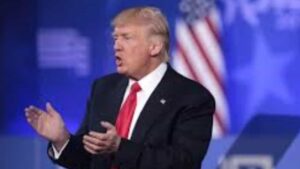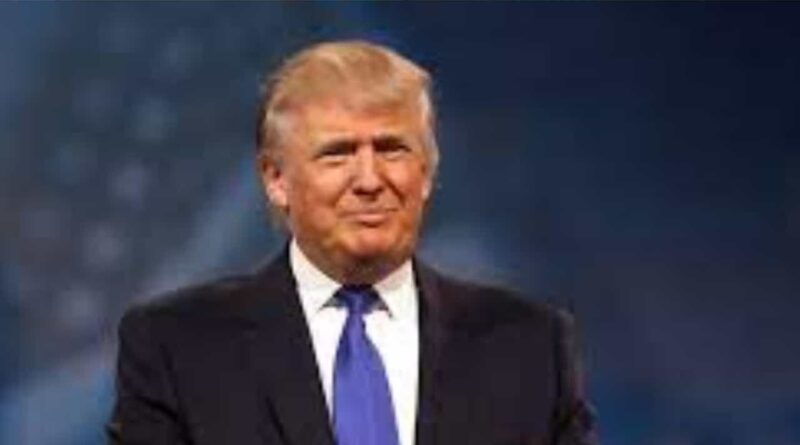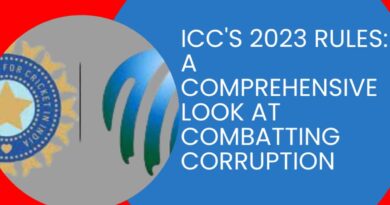Donald Trump Controversy USA Teacj
Donald Trump Controversy USA Teacj
Donald Trump
Donald Trump: A Polarizing Figure in American Politics
Introduction
Donald Trump, the 45th President of the United States, was one of the most controversial figures in American politics during his time in office. From his unorthodox campaign to his tumultuous tenure as president, Trump’s actions and statements generated constant media attention and public debate.

Background
Trump, a businessman, and television personality had never held political office before running for president in 2016. Despite being considered a longshot candidate, he won the Republican nomination and ultimately defeated Democratic nominee Hillary Clinton in the general election. His campaign was marked by populist rhetoric and promises to “Make America Great Again.”
Presidency
During his four years in office, Trump implemented several controversial policies, including the implementation of a travel ban on several Muslim-majority countries and the separation of families at the US-Mexico border. He also withdrew the United States from the Paris climate agreement and the Iran nuclear deal. In addition to his policies, Trump’s statements and tweets were often criticized for being divisive and inflammatory.
Impeachment
In December 2019, the House of Representatives voted to impeach Trump for abuse of power and obstruction of Congress. The Senate ultimately acquitted him of these charges in early 2020.
Post-Presidency
Since leaving office in January 2021, Trump has continued to be a prominent figure in the Republican Party and has hinted at the possibility of running for president again in 2024. However, his legacy continues to be a source of debate and division in American politics.
Conclusion
Donald Trump’s presidency was marked by controversy and division. His actions and statements generated constant media attention and public debate, and his impeachment trial further entrenched the country’s political polarization. Despite leaving office, Trump’s influence on American politics and the Republican Party remains significant.
Economic Policies
During his presidency, Trump implemented several economic policies, including tax cuts and deregulation. He also renegotiated trade deals with countries such as Canada and Mexico and imposed tariffs on goods from China. While these policies were praised by some for boosting economic growth, they were also criticized for increasing the federal deficit and exacerbating income inequality.
Foreign Policies
Trump’s foreign policies were also a source of controversy. He sought to improve relations with countries such as North Korea and Russia, but also engaged in a trade war with China and pulled out of international agreements such as the Trans-Pacific Partnership. His decision to move the U.S. embassy in Israel to Jerusalem and recognize the Golan Heights as Israeli territory also sparked criticism from many in the international community.
Influence on the Republican Party
During his presidency, Trump’s unorthodox style and populist rhetoric reshaped the Republican Party in his image. Many Republican politicians aligned themselves with Trump and his policies, leading to a realignment of the party. Trump’s influence has continued even after he left office, with many Republican politicians still publicly supporting him and his policies.
Racial Tensions
Trump’s presidency was also marked by increased racial tensions in the country. His statements and policies were criticized for being divisive and racist, particularly towards immigrants and people of color. Trump’s response to the Black Lives Matter protests in 2020, which erupted following the killing of George Floyd, also drew criticism for being insufficient and further inflaming racial tensions.
Conclusion
Donald Trump’s presidency was marked by controversy and division. His policies and statements generated constant media attention and public debate, and his impeachment trial further entrenched the country’s political polarization. Despite leaving office, Trump’s influence on American politics and the Republican Party remains significant. Many of the issues that defined his presidency, such as economic inequality, racial tensions, and political polarization, continue to be major challenges facing the country.
Covid-19 Response
The outbreak of the Covid-19 pandemic during Trump’s presidency presented a significant challenge for the administration. Trump’s initial response to the virus was criticized for being slow and inadequate, and his subsequent actions, such as downplaying the threat of the virus and promoting unproven treatments, were met with widespread condemnation. Trump also faced criticism for his handling of the vaccine rollout, which was plagued by logistical issues and inadequate distribution.
Climate Change
Trump’s presidency was marked by a significant rollback of environmental protections and a disregard for the issue of climate change. Trump announced the United States’ withdrawal from the Paris Agreement, a global effort to combat climate change, and rolled back Obama-era environmental regulations. Trump also sought to open up previously protected lands and waters for drilling and mining, a move that drew significant criticism from environmentalists.
Social Media
Throughout his presidency and even post-presidency, Trump has been known for his use of social media, particularly Twitter, to communicate with the public and express his views. This use of social media was both praised and criticized, with some praising his direct communication with the public, while others criticized his use of social media as a means of spreading misinformation and spreading hateful and divisive rhetoric.
Post-Presidency Activities
After leaving office, Trump has been active in continuing to shape the Republican Party and American politics. He has maintained a high public profile and has continued to speak out on political issues. Trump has also hinted at the possibility of running for president again in 2024. He has also been involved in several court cases related to his actions as president and his post-presidency activities.
Conclusion
Donald Trump’s presidency was marked by controversy and division. His policies, statements, and use of social media generated constant media attention and public debate. He left office with a legacy of a country divided politically, socially, and racially, and with a significant number of issues that are still unresolved. His post-presidency activities indicate that his influence on American politics and the Republican Party remains significant. The challenges that defined his presidency, such as economic inequality, racial tensions, political polarization, and the response to the Covid-19 pandemic, continue to be major issues facing the country today.
Election 2020 and the Capitol Insurrection
In the 2020 presidential election, Trump lost to Joe Biden, but he and his campaign made false claims of widespread voter fraud, which were rejected by courts and state officials. Trump urged his supporters to march on the U.S. Capitol on January 6, 2021, in an attempt to overturn the election results. The event turned into a violent insurrection when Trump supporters breached the Capitol, breaking windows, and clashing with police, resulting in the deaths of five people and leaving dozens injured. Trump was impeached by the House of Representatives for incitement of insurrection, becoming the first president in U.S. history to be impeached twice.
Post-Insurrection and Ban from Social Media
In the aftermath of the insurrection, Trump faced widespread condemnation and calls for his resignation or removal from office. He was also banned from several social media platforms, including Twitter and Facebook, due to concerns that he would continue to use them to incite violence. This action has sparked a debate about freedom of speech and the role of social media in moderating content.
Trump’s Impact on American Politics and Society
Trump’s presidency and actions have had a profound impact on American politics and society. His populist and nationalist rhetoric, as well as his disregard for traditional political norms, have reshaped the Republican Party and American politics. His presidency also intensified pre-existing issues such as political polarization, economic inequality, and racial tensions. Trump’s post-presidency activities and continued influence over the Republican Party also suggest that his impact on American politics and society will continue to be felt for years to come.
Conclusion
Donald Trump’s presidency was marked by controversy and division. His policies, statements, and use of social media generated constant media attention and public debate. His actions, such as his role in the Capitol insurrection, have had a profound impact on American politics and society. His post-presidency activities indicate that his influence on American politics and the Republican Party remains significant. The challenges that defined his presidency, such as political polarization, economic inequality, racial tensions, and the response to the Covid-19 pandemic, continue to be major issues facing the country today. His legacy will be studied for many years to come by researchers, political analysts, and historians, trying to understand the impact that he had on the country and the world
donald trump jr




